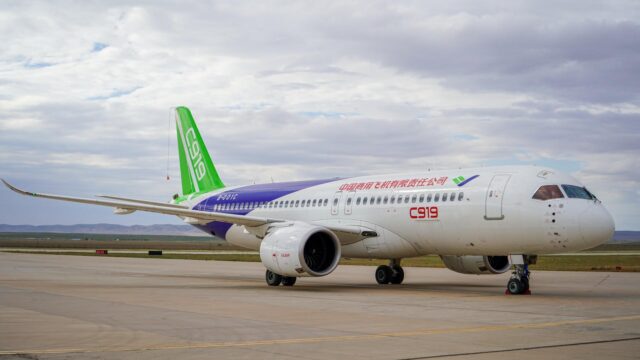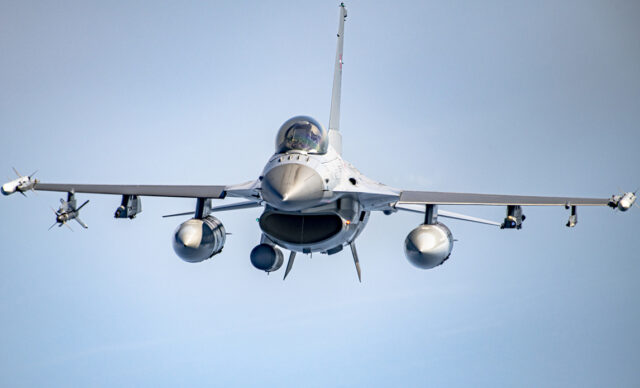Fighting ‘flygskam’: Sweden to scrap aviation tax

Last week, Sweden – the country that amidst many marvellous aviation inventions, also gave the world Greta Thunberg and the concept of ‘flygskam’, or ‘flight shame’ – announced it was to abolish the tax on commercial air fares from July 2025.
Unsurprisingly, although many environmental activists welcomed the news with the sort of indiscriminate indignation expected to follow such a statement, others (both within the industry and beyond) hailed the move as a sensible one. Alongside passengers naturally relieved to retain a few extra pounds in their pocket, the International Air Transport Association (IATA) also praised what it termed the “excellent news, which recognises that the taxation of air passengers is counterproductive economically and ineffective environmentally”.
How do Swedish air taxes compare?
Sweden’s air passenger duty, instigated in 2018, currently stands at 76 SEK (£5.63) for European destinations and between 315 and 504 SEK (£23.32 and £37.31) for destinations further afield. It is applicable to all flights certified for ten passengers or more departing from or landing on Swedish soil (with the exception of transiting passengers).
“Aviation taxes are hard to compare,” IATA told Aerospace Global News, adding the caveat that “some taxes are hidden in visa charges, tourism taxes and some other charges”. However, Sweden’s current duty (approximately €6.70 – €44) compares “fairly closely to the UK Air Passenger Duty, which is about €7.70 – $111”. France’s tax, meanwhile, is lower at €1.50 – €9, the Dutch implement one flat tax of about €26, and Germany’s ranges from €13 – €59.
Other nations have abolished air passenger duty too
Over the years, several countries have amended or abolished taxes on air passengers. In 2021, air passenger duty in the UK was halved on domestic flights, while the Northern Irish government abolished its tax on international flights to preserve its competitiveness compared to the Republic of Ireland (which scrapped its own tax in 2014).
In Switzerland, a proposed aviation tax (as part of an overall package of climate taxes) was rejected in a referendum, while in June this year, Thailand scrapped plans for a tourism tax on air travellers to encourage spending in other areas – proof of air passenger duty’s potential to damage economies. However, after removing its tax in 2009, the Netherlands subsequently reinstated it in 2017.
No taxes recycled into industry
Crucially, with taxes imposed by governments, tax authorities and other charging authorities (not airlines), all monies collected go straight to central funds, confirmed IATA. “Once collected, there are no taxes that we are aware of that publicly announce that the funds are recycled back into the industry. In Demark, the government have announced that 50% of their aviation tax [to be phased in from 2025] will be used for investment in sustainable aviation fuel and other ecological measures. But this is an exception.”
As the airlines do not receive the taxes their passengers are burdened with, it does not provide a way by which carriers could accelerate their investment in incentives such as new technology or fleet renewal. Whether aviation-related tax revenue is subsequently allocated into national sustainability strategies is a matter for individual governments to ascertain.
Incentivising sector’s recovery
With IATA’s regional vice president for Europe Rafael Schvartzman noting that Sweden’s post-pandemic air recovery has “notably lagged its neighbours, a problem made worse with the tax,” he nevertheless added that 2050 net zero goals “will not be achieved by pricing people off planes”.
In August this year, Scandinavian Airlines (SAS) – the flag carrier airline of Denmark, Norway and Sweden – announced it had emerged from a two year long reorganisation process, successfully restructuring more than $2 billion of debt. Administrators’ reports attributed the airline’s failing profitability to, amongst other things, the “financial consequences of the prolonged pandemic”.
“SAS welcomes the Swedish government’s decision to propose abolishing Swedish passenger tax by 2025,” the airline told Aerospace Global News. “The Swedish aviation market is recovering slower than in the rest of Scandinavia and Europe. Removing the passenger tax is one important step that will strengthen the competitiveness of Sweden.” SAS continued that “by abolishing the passenger tax, the government sends a message to our industry that it is time to focus our time and resources on reducing the actual emissions while we continue to offer the connectivity that Sweden is so depending on”.
Environmental concerns as justification
Although there is no definitive start date to what IATA has identified as “an increasing trend to tax passengers and airlines for the environmental impact of air travel,” it adds that “as awareness of climate change increased in the 2000s, governments looking to raise money from aviation use could use environmental concerns as a justification for passenger taxes that might otherwise has been more widely resisted. An example of this is UK air passenger duty, which was ‘rebadged’ as a green tax in 2007”.
Inevitably, many environmental activists continue to express their dismay at the upcoming revocation of Sweden’s air passenger tax. “It’s concerning how under-taxed flying remains,” wrote one outraged social media user, believing that taxation’s value lies in its apparent ability to simply price people out of flying – certainly with such regularity.
However, with passenger duty having no direct correlation to decarbonisation (and providing no direct funding for related initiatives), it remains – as IATA concludes – “a drag on Swedish economic competitiveness while making no positive environmental impact”. Instead, embracing aviation’s potential as a positive economic and social enabler – unhindered by counterproductive and ineffective taxation – can, in the opinion of many, only lead to positive change.
















